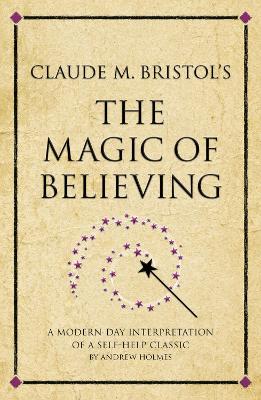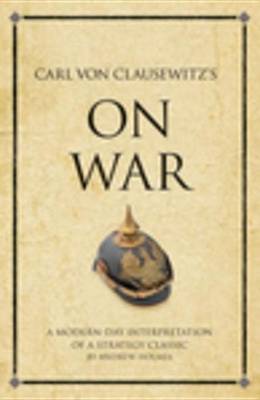Infinite Success
3 total works
When Claude Myron Bristol was a soldier in the First World War he endured a period in which he had no pay and couldn't even afford cigarettes. He made up his mind that when he got back to civilian life he would become rich. For Bristol this was a decision, not a wish. Having made the decision he focused all his mental powers on achieving his goal. Bristol believed that every action (both his and those of others) helped him realize his objective, and he did indeed become rich. Bristol believed in the magic of believing, the difference between someone who constantly thinks the worst and seems to find it at every turn and one who expects the best of every situation and always seems to get it.
When Bristol returned home he was offered a job with a small salary but he constantly kept before him a mental picture of wealth. In quiet moments he doodled dollar signs on pieces of paper on his desk. This definiteness of belief, he said, more than anything else paved the way for a highly successful career in investment banking and business. In 1948 he published The Magic of Believing, which became a prosperity classic.
The Magic of Believing was written for ex-service men and women who would have to adjust to civilian life and try to prosper in it, but from the moment of publication it has been inspiring hundreds of thousands of readers from all walks of life. For nearly 70 years success-oriented readers have turned to the no-nonsense, time-tested motivational techniques described in The Magic of Believing to achieve their goals.
In Claude M. Bristol's The Magic of Believing Andrew Holmes distils the key themes and ideas of this classic into 52 bite-sized chunks, supported by examples from business, sport, history and human endeavour. Readers will discover how to:
* Think big to be big;
* Trump intimidation;
* Harness the power of talismans;
* Create a can-do culture;
* Hold on to success.
This book is an entertaining accompaniment to one of the most popular self-help books ever written, providing readers with all the tools they need to harness the power of the mind.
When Bristol returned home he was offered a job with a small salary but he constantly kept before him a mental picture of wealth. In quiet moments he doodled dollar signs on pieces of paper on his desk. This definiteness of belief, he said, more than anything else paved the way for a highly successful career in investment banking and business. In 1948 he published The Magic of Believing, which became a prosperity classic.
The Magic of Believing was written for ex-service men and women who would have to adjust to civilian life and try to prosper in it, but from the moment of publication it has been inspiring hundreds of thousands of readers from all walks of life. For nearly 70 years success-oriented readers have turned to the no-nonsense, time-tested motivational techniques described in The Magic of Believing to achieve their goals.
In Claude M. Bristol's The Magic of Believing Andrew Holmes distils the key themes and ideas of this classic into 52 bite-sized chunks, supported by examples from business, sport, history and human endeavour. Readers will discover how to:
* Think big to be big;
* Trump intimidation;
* Harness the power of talismans;
* Create a can-do culture;
* Hold on to success.
This book is an entertaining accompaniment to one of the most popular self-help books ever written, providing readers with all the tools they need to harness the power of the mind.
Ralph Waldo Emerson was an American transcendentalist philosopher and essayist. Between 1836 and 1837 he presented a series of lectures on the philosophy of history at Boston's Masonic Temple. Many of the ideas expressed in these lectures were later used in Self-Reliance, first published in 1841, in which Emerson illustrated the need for each individual to avoid conformity and to follow his or her own instincts.
Andrew Holmes' interpretation of Self-Reliance illustrates the timeless nature of Emerson's insights using twenty-first century examples. Ralph Waldo Emerson's Self-Reliance is an entertaining and eye-opening accompaniment to a true self-help classic. Today's readers will discover:
* How to recognise in every work of genius their own rejected thoughts;
* Why imitation is suicide and envy is ignorance;
* How to recognise the foolish face of praise;
* How to learn self-trust;
* That nothing can bring you peace but yourself.
Full of wise advice from one of America's greatest nineteenth-century thinkers, Self-Reliance continues to open our eyes to our potential and show us how to take control of our lives. Ralph Waldo Emerson's Self-Reliance is not a substitute for the original. Its purpose is simply to illustrate the timeless nature of Emerson's insights into human nature by bringing them to life in a contemporary context. Andrew Holmes' brilliant reworking of Self Reliance is an entertaining and highly practical guide to one of the most influential self-help books of all time.
Andrew Holmes' interpretation of Self-Reliance illustrates the timeless nature of Emerson's insights using twenty-first century examples. Ralph Waldo Emerson's Self-Reliance is an entertaining and eye-opening accompaniment to a true self-help classic. Today's readers will discover:
* How to recognise in every work of genius their own rejected thoughts;
* Why imitation is suicide and envy is ignorance;
* How to recognise the foolish face of praise;
* How to learn self-trust;
* That nothing can bring you peace but yourself.
Full of wise advice from one of America's greatest nineteenth-century thinkers, Self-Reliance continues to open our eyes to our potential and show us how to take control of our lives. Ralph Waldo Emerson's Self-Reliance is not a substitute for the original. Its purpose is simply to illustrate the timeless nature of Emerson's insights into human nature by bringing them to life in a contemporary context. Andrew Holmes' brilliant reworking of Self Reliance is an entertaining and highly practical guide to one of the most influential self-help books of all time.
Soldier and intellectual Carl von Clausewitz first entered combat at the tender age of thirteen. He later rose to the rank of Major General, married into the Prussian nobility and wrote a book which was to become one of the most influential works on military strategy ever published. On War is one of the first books on modern military strategy. Writing mostly after the Napoleonic wars, between 1816 and 1830, von Clausewitz never lived to see it published. He had a theory that it was the integration of political, societal and economic issues that was the most important factor in deciding the outcome of a war. This new theory made On War one of the most important texts on strategy ever written. On War has been translated into practically every major language and remains a source of inspiration for modern strategic thinkers.
In this fascinating new interpretation, Andrew Holmes illustrates how von Clausewitz's ideas can be applied to contemporary business. Readers will discover:
* Why business, like war, is neither an art nor a science;
* How to 'fortify' their business;
* The importance of a strong commander;
* The secrets of being ruthless;
* Why they should bypass their smart phones and open up the lines of communication.
By re-interpreting von Clausewitz's original theories, Holmes demonstrates that On War is not just about the battlefield. This clear, concise and waffle-free book shows how you can treat life like a military operation and steer your troops in the right direction in the world of business. Andrew Holmes' Carl von Clausewitz's On War illustrates the timeless nature of von Clausewitz's insights by bringing them to life with modern examples and business case studies. This brilliant interpretation of On War is an entertaining accompaniment to one of the most famous strategy books ever written.
In this fascinating new interpretation, Andrew Holmes illustrates how von Clausewitz's ideas can be applied to contemporary business. Readers will discover:
* Why business, like war, is neither an art nor a science;
* How to 'fortify' their business;
* The importance of a strong commander;
* The secrets of being ruthless;
* Why they should bypass their smart phones and open up the lines of communication.
By re-interpreting von Clausewitz's original theories, Holmes demonstrates that On War is not just about the battlefield. This clear, concise and waffle-free book shows how you can treat life like a military operation and steer your troops in the right direction in the world of business. Andrew Holmes' Carl von Clausewitz's On War illustrates the timeless nature of von Clausewitz's insights by bringing them to life with modern examples and business case studies. This brilliant interpretation of On War is an entertaining accompaniment to one of the most famous strategy books ever written.


